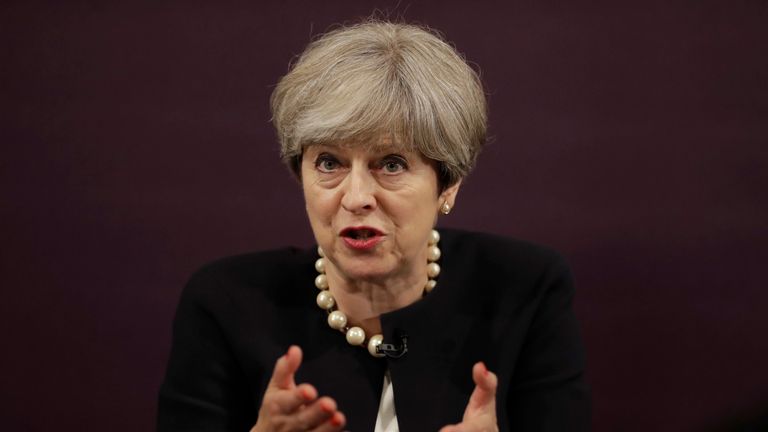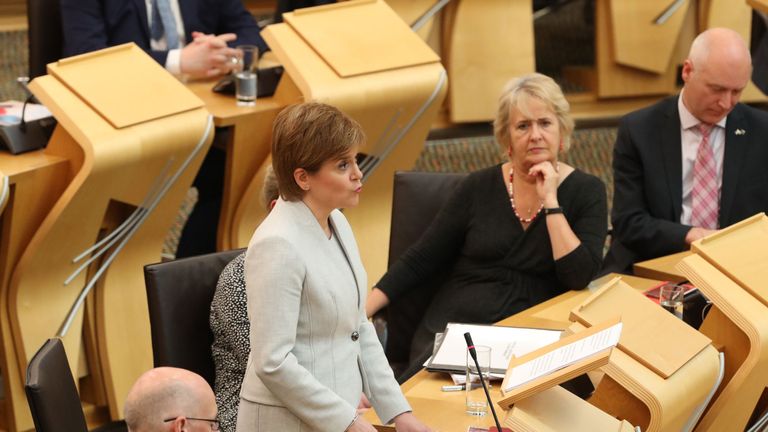Pay cap: Theresa May seems to have found 'magic money tree'
The PM said during the election campaign that "there's no magic money tree" - three months later it seems there is after all.
Thursday 7 September 2017 23:34, UK
For Theresa May, it was one of the most uncomfortable moments of a painful General Election campaign.
In a TV election programme just six days before polling day, she was confronted by Victoria Davey, a long-serving NHS nurse.
"Working as a nurse for 26 years, do the Tories expect our support in the light of another 1% pay rise?" she challenged the Prime Minister.
"My wage slips from 2009 reflect exactly what I'm earning today, so how can that be fair in light of the job that we actually do?"
The PM responded, in an answer that was later widely criticised as "callous and incompetent", by declaring: "There's no magic money tree."
Yet now, three months and a lost Commons majority later, it seems there is a magic money tree after all and the 1% cap .
"We know a number of people in the public and private sectors feel they are just about managing," said the Prime Minister's official spokeswoman this week.
"And we recognise the sacrifice they are making. But there is a process in place and I can't pre-empt the process."
The process is that the Government writes to pay review bodies for groups like nurses, other NHS staff, teachers, police and the armed forces making a recommendation.
And the expectation is that these bodies will report back in time for the Chancellor's Budget - probably in late November - and Philip Hammond will announce the lifting of the cap with a flourish.
(Or at least the nearest thing to a flourish that the often less-than-charismatic "Spreadsheet Phil" can manage. Though his supporters would say that's unkind!)
Ever since the election - when many Tory MPs encountered hostility to the pay curbs on the doorstep during the campaign - the Chancellor has been under pressure to "scrap the cap".
As you might expect, Health Secretary Jeremy Hunt has been lobbying for more pay for nurses and Education Secretary Justine Greening for teachers.
There are also powerful voices lobbying on behalf of the armed forces, including the former head of the Army, Lord Dannatt, who claims that if there was another operation like Iraq or Afghanistan it would struggle to recruit enough soldiers.
So far, the clearest indication of the Government's latest thinking has come from Chris Grayling, who ran Mrs May's leadership election campaign last year and is now Transport Secretary.
"We of course listen to the lessons from the general election campaign," he said. "But when it comes to these big financial decisions they are things that have to wait for the Budget."
It has been suggested that the Chancellor is annoyed about the Cabinet Office trying to "bounce" him into lifting the pay cap because it wants pay rises for civil servants.
There is not much public sympathy for Whitehall mandarins when it comes to pay. But unions will, of course, point out that most civil servants are poorly paid and work in benefit offices and job centres a long way from Whitehall.
When the cap is lifted - and it will be when, not if - the Government will emphasise its generosity to the most popular groups of public sector workers like nurses, police officers and the armed forces.
That is because the Prime Minister - who now wants to lead the Tories into the 2022 general election - will not have forgotten her uncomfortable TV clash with Victoria Davey during the last election campaign.






